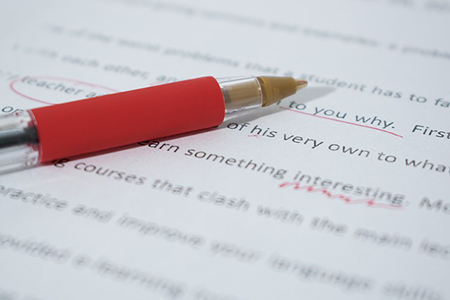
Toying with the Idea of Writing a Book? A Good Editor Can Help
Everybody has a story to tell. Have you ever thought of writing your story? That’s right – what about writing a book?

Photo Credit: StockSnap
Authoring a book can be a fun hobby or serious pursuit, but if you have a story to tell, maybe you should think about capturing it in a book. The process can be lengthy, but once you’ve captured your story in writing, your book can find an audience if the story’s good.
One of the most important things a writer needs to publish a book is a good editor, so your book can be the best it can be. I love to read. I love to write. I love to edit…for others. Not for myself. I don’t believe you can be an effective editor for yourself, even though it’s possible to “self-edit.” Collaborating with a professional just makes your book better—and serves as a second (expert!) set of eyes on the project. As both a book lover and professional editor, I’ve read hundreds of books by new and experienced authors, and I can tell you, there are some books I’ve never finished because they were so poorly edited, containing typos, misspellings, run-on sentences, and worse.
A lot of people think of an editor as the person at a publishing house who buys your book and releases it to the public. While these individuals are included in the broad category of editors, they’re not the ones I’m talking about here. For purposes of this article, an “editor” is someone who will take your manuscript and polish it for publication before it even gets to a publishing house (if that’s the route you’re pursuing). An editor is essential for you to have the best book possible. So it’s never a question of “Do I need an editor?” The answer is always yes.

Editing a Book
So what does an editor do for a writer? The answer is … a lot. An editor can do anything from basic proofreading to conceptual and thematic critique. When you’re looking for an editor, you need to be very clear about what you need and what you’re expecting. So here’s a basic rundown of four major services that editors may offer to make your manuscript shine.
Line editing or copy editing is the most basic type of editing service. This process involves a read-through of your manuscript with an eye toward spelling, grammar, punctuation, and awkward sentences. This type of editing will make your manuscript more readable.
Another editing service you may want to consider is content editing. A good content editor can help you ‘cut the fat’ from your story. Some writers can be a little verbose or wordy when they write. There’s nothing intrinsically wrong with wordiness. However, at some point before publication, awkward story elements and unnecessary descriptions should be removed to tighten your book and make it read better and faster. Content editing can significantly improve your manuscript since it’s more than proofreading for grammar, punctuation, and spelling.
A third editing service that’s available to you as a writer is developmental editing. This type of editing focuses on the plot or structure of your story. “Plot holes” can be a problem in early drafts of a book. Sometimes a great idea isn’t quite fully formed, and it’s hard for the story to find its natural course without a little help. A good developmental editor can help point out holes that stop a story dead in its tracks or push it off course so the ending doesn’t make sense. Filling those holes will make your story complete and satisfying to your reader.

Photo Credit: Kaboompics
Last but not least is thematic/concept editing, which both novice and professional writers often use to polish their stories. Thematic or concept editing focuses on what your story is about, the underlying theme or message you are trying to convey—in other words, the “big picture” of your story. For example, are you writing a story of redemption, love, happiness, and so forth? Your theme should pervade your story and leave the reader with that thought at the end.
Thematic/concept editing also involves asking questions that focus on helping your readers understand and enjoy your book. There may be something missing in a character’s motivation, a confusing plot sequence, or a glitch that might throw your reader out of the story. For example, I recently edited a book where one of the characters sought out another character and offered to help solve a problem. However, I didn’t understand the former character’s motivation. Without that information, the story didn’t make sense to me. I helped the writer think through and articulate that character’s motivation, which further developed the character, made the story read smoother, and heightened the action.
One of the last things every good editor does is to help you maintain your “voice” or writing style. Every writer is different and has a distinctive way to tell their story. A good editor will help you hone your voice and keep your writing style distinctive.
It’s good to know that many editors offer more than one of these services, and you may be interested in only one. When talking with potential editors, ask good questions and clearly articulate your writing needs.
Do YOU need an editor? I honestly can’t think of a writer who doesn’t. Even the greats like Stephen King and JK Rowling need editors, so no matter how good you think your manuscript is, there’s a good chance it could be better. Why not polish your book to make it the best it can be? Your readers will thank you!
When do you need an editor? First, you need a completed manuscript. Unless you need some help with developmental and conceptual editing to find your way to the end of your manuscript, you should have already finished your writing.
